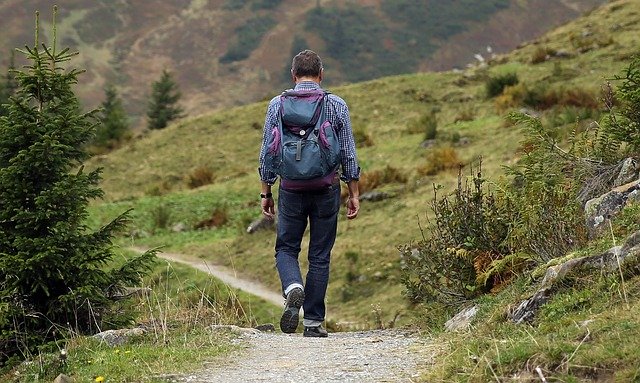Every person who suffers from addiction will need help to make a full recovery and rehab is the best option for that. You may be wondering if you are ready for rehab or if your addiction is severe enough to need a rehab treatment. However, if you are here reading this, then chances are you already know that right now is the right time to seek rehab treatment.
If you are in denial about your addiction, it can be very hard to come to terms with the fact that you need to attend rehab. The first step in your recovery from addiction is being able to admit that you have a problem with addiction in the first place.
Request a Callback
Enter your phone number and a member of our team will call you back to discuss your recovery.
Admitting that you have an addiction problem is a very brave and courageous thing to do and you should be very proud of yourself when you do it. Only once you’ve admitted to yourself that you have an addiction will you be ready for rehab. It’s important to be in the right mind set to make a full recovery.
The Process of Recovery In Rehab
The way your specific addiction is treated completely depends on the person, their addiction, the severity and their mental wellbeing. Some people can be in rehab a week, some a few months, some people can even be in rehab for over a year, depending on the severity.
Every treatment process is slightly different but they all start the same. When you first arrive you will be assessed by a medical team and a treatment programme will be made personal to your specific needs and to treat your specific case. From there the treatment will begin.
Detox
The first step in residential rehab treatment is a process called detoxing. Detoxing is when you free your body of all traces of drugs and alcohol. Doing this at home, away from medical professionals, without being observed can be extremely dangerous.
When detoxing you will experience withdrawal symptoms, it is beneficial to be in rehab while you detox so that medical professionals can administer medications to make you more comfortable and combat withdrawal symptoms. They are also there to keep you safe from the more dangerous withdrawal symptoms.
When detoxing from drugs or alcohol you may experience withdrawal symptoms such as:
- Shaking
- Fever
- Vomiting
- Headache
- Nausea
- Anxiety
- Depression
- Insomnia
- Confusion
- High blood pressure
- Diarrhoea
- Flulike symptoms
- Muscle aches and pains
- Irritation
- Thinking of self-harm
- Fatigue
- Irregular heart rate
- Sweating
- Psychotic episode
- Hallucinations
- Seizures
Medical detox in a residential treatment hospital is the safest and most comfortable way to withdraw from drugs and alcohol in Scotland. It is important to remember that different drugs have different withdrawal symptoms and a different timeline of recovery. It also depends on the severity of the addiction.
There are different medications that can be used to help a person withdraw, such as benzodiazepines sometimes known as “benzos” for somebody with alcohol addiction, this can help stop seizures and the nasty symptoms you can experience with alcohol withdrawal.
Methadone is usually used as a long-acting medicine for opioid withdrawal. There are many more medications used but this is the most powerful and most effective medication.
Detoxing from a severe addiction is not safe to do away from medical professionals, especially not alcohol detoxing as this can cause hallucinations and seizures.
This can be life-threatening if not observed by medical professionals. Rehab is the safest and most effective way to detox and get treatment for your recovery.
Psychological Therapies
Psychological therapy is the foundation of your recovery, this will help you to understand your addiction. You will learn all about your addiction and yourself. This is where you will learn more self-awareness and understand things about yourself you didn’t know before. This is where you will get down to the roots of the problem.
Any mental health issues will be dealt with here; many people get a dual diagnosis while in therapy. A dual diagnosis is when someone dealing with addiction also has an undiagnosed mental health disorder. This is very common and more than half of people with a mental health condition will deal with addiction at some point in their lives.
Psychological therapy may sound negative but is actually a very positive thing. Therapy will also teach you to see more positive and inspire you with positive thoughts and feelings.
You may experience psychological therapy in many different ways. Sometimes you will receive therapy in a one to one, face to face meeting with a professional. Other times you may experience therapy in a peer support group.
Another therapy you will receive is cognitive behavioural therapy, this is a very effective tool in addiction recovery, it teaches you about your thought process and coping strategies.
The psychological therapies will also continue after you leave rehab. Your recovery journey doesn’t stop when you leave rehab, neither does the support. Therapy is vital in overcoming your addiction.
Social Therapy
During your stay in rehab, you will be involved in many social activities. Whether this is group walks, games, quizzes and more. This will not only be fun but you will be able to socialise with people in a safe environment away from any influences.
You will also find more support in social settings, this is key for an effective recovery both in rehab and outside.
Wellbeing Therapy
The best thing for you when recovering is dopamine. Dopamine is a natural, happy hormone that sends messages of happiness and pleasure to your brain. This will be vital in your recovery. Some wellbeing therapies consist of:
- Yoga
- Reiki
- Massage
- Meditation sessions
- Exercise
When in rehab you will receive a mix of all treatments. They will be carefully scheduled to fit you and your specific needs.
Related News

Addiction and Denial

A Guide To Keeping Up Recovery After Drug Rehab
